It has been a long time since I have written. I have moved house, attended many births, spent time with family and most recently volunteered in Malawi as a Helping Babies Breathe Facilitator with a wonderful volunteer team.
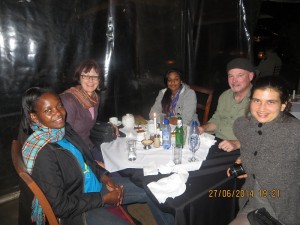
Flying from Blantyre to Lilongwe was a feast for the eyes, with Lake Malawi stretched out in Blue surrounded by African Savannah in shades of green and brown, pieces of a puzzle interlocked by dusty strings of soil red roads. The homes of rural communities dotted each puzzle piece in soft colours, clay bricks and grass rooves. No hard square dwellings, no power lines or telegraph poles to marr the view of African plains. Lilongwe is a developing city with many building projects in progress or as yet unfinished.
After our first night at the hotel, it was up early Monday morning for breakfast, before facilitating our training at Kamuzu Central Hospital in Lilongwe. We were met by waiting participants, doctors and midwives. This was our schedule for the next 5 days, each day with a different group. No holiday for us here! We managed to visit the market one afternoon and buy some locally produced Malawian cloth to bring home.
Kamuzu Central Hospital is a tertiary level referral hospital and a training hospital for medical students and midwives. Midwives attend a two year midwifery training programme and are well versed in normal physiological birth as they train in clinic facilities as well as tertiary care hospitals. All the staff spoke English and Chichewa, one of the local languages. There is a neonatal resuscitation station in the nursery, but not in the labour ward. The Helping Babies Breathe participants were interested to learn how to help the baby breathe without cutting the cord immediately next to the mother on the bed. The key to the Helping Babies Breathe programme is the First Golden Minute, within which most babies will recover and breathe after birth. A quick visual and auditory assessment of the baby at birth and simple steps to assist babies to breathe, can save lives and give a much better start to babies who struggle to breathe at birth. Every baby deserves to have a skilled birth attendant present at birth to assess their needs, keep them warm and help them breathe, all within the first golden minute after birth.
Participants gave birth to their neonatalie babies with great variation and laughter, while birth attendants dried and stimulated the babies with skill and care. After demonstrating the ‘C’ hold for the neonatal mask, participants got the hang of it post positioning their neonatalies for ambubag ventilation. The collection of pics share more than words and I show them here:
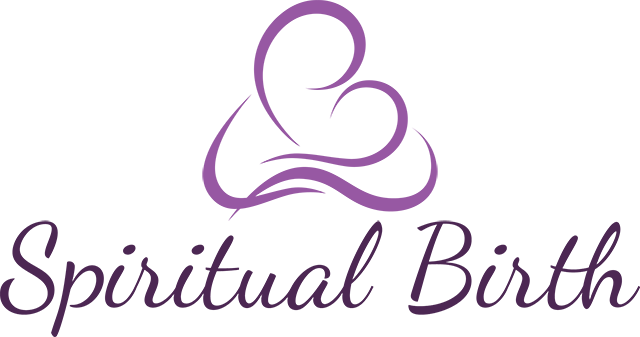
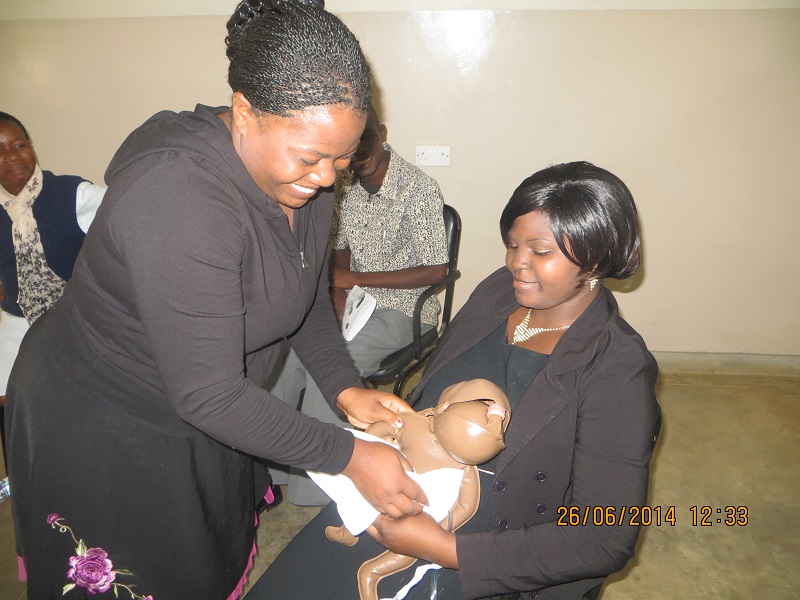
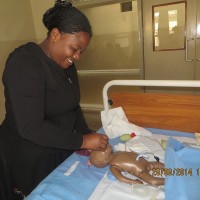
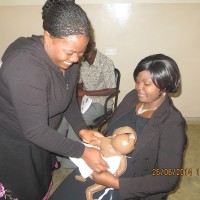
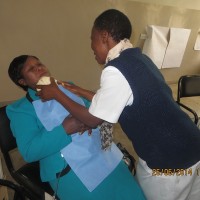
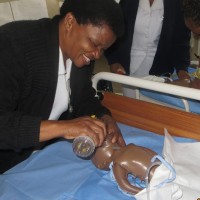
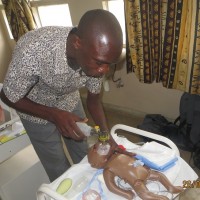
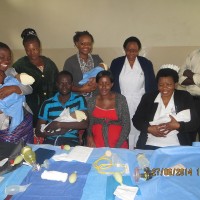
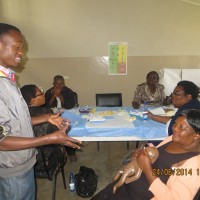
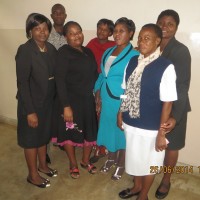
Thank you Clare. You are right – it was a wonderful experience and made me SOO appreciative of the technology we have access to in South Africa. We truly are privileged!
Thank you for that article and looks like the participants in the course learnt so much, but like life you must have gained so much yourself working with them.